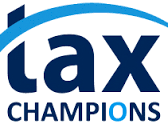Tax Settlement

Several years ago, many tax relief companies ran overpromising ads on tv and the radio. Many people must certainly remember them. They boasted that they could achieve a tax settlement with the IRS for “pennies on the dollar.”
In reality, these companies couldn’t achieve this type of settlement for most taxpayers. That’s because they’re designed for taxpayers with severe financial hardships.
However, the IRS does offer a multitude of programs that allow taxpayers to resolve their back-tax debt today. A tax settlement program may even allow you to settle your back-tax debt for less than the full amount you owe.
Who Qualifies for a Tax Settlement?
The IRS has designed tax settlement options for people who can’t settle their past tax liability within their lifetimes. These settlement options are also ideal for people who would experience an extraordinary financial hardship by doing so.
The IRS will only consider tax settlement offers from taxpayers who are up to date with their filings and established payment installments. In addition, the taxpayer must not have an open bankruptcy proceeding.
Help is available if you’d like to apply for an IRS tax settlement on your own. In fact, the IRS has an instruction booklet available to taxpayers for this purpose. Another option is to hire a tax professional to help navigate the process. Professional tax help empowers people to maximize their opportunity for a favorable settlement outcome.
If you don’t qualify for a tax settlement, you may still have options. For example, you may want to pursue a particular tax settlement that requires you have no unfiled tax returns. But you have four years of unfiled tax returns. Be that as it may, you can prepare and file the missing returns. The IRS will then consider your case for the program you want.
It’s important to note that you should be cautious when you prepare and file the returns on your own. You need to file each return on the appropriate forms for each corresponding year. In addition, be mindful of the tax code changes from year to year and apply each year’s rules accordingly.
Tax Relief Services
Getting a Tax Settlement Approval
Revenue agents commonly grant approvals when they perceive the settlement offer as the best they can do. In other words, they see the offer as the most they can collect from the taxpayer in a reasonable timeframe.
Firstly, the revenue agent thoroughly examines the taxpayer’s case. The agent comes to a determination after scrutinizing his or her income, assets and expenses. If the agent determines that the case is eligible for a settlement, he or she reviews the settlement offer.
Although one may qualify for an approval according to the eligibility rules, their tax settlement proposal may not be adequate. So, the agent must examine the characteristics of the proposal. He or she will first review the included elements of the proposal, such as the included documentation and the first payment.
Tax settlements are approved for only a small percentage of applicants. Consider hiring a tax professional to construct your settlement proposal. This will enhance the likelihood of an approval.
What to Expect After Submitting a Tax Settlement Proposal to the IRS
During the time period in which the IRS is reviewing your application, they may send you a Notice of Federal Tax Lien. But, don’t panic! This is common and doesn’t indicate that the revenue agent has made a determination.
The IRS does, on the other hand, stop other collection activities, like wage garnishments and bank levies. The taxpayer does not need to continue making the payments on a previously established installment agreement. That is, until the IRS has decided.
The IRS says, “If you have an installment agreement in place, you do not have to make payments while your offer is being processed. If your offer is not accepted and you have not incurred any additional tax debt, [then] your installment agreement with the IRS will be reinstated with no additional fee.”
Furthermore, if the IRS doesn’t make their decision within two years of the date that the proposal was filed, it will automatically be approved.
If you receive an acceptance on your proposal, then federal tax liens will be released once it’s satisfied. In addition, you’ll forfeit any refunds due to you within the calendar year of the date of the proposal acceptance. These funds will also be applied to the back-tax debt.
If your proposal is rejected, you have the right to appeal the decision within 30 days by filling out Form 13711. The IRS provides an online tool to help you appeal the decision or you may contact your tax professional for guidance.
I Want to Apply for a Tax Settlement. Where Do I Start?
Applying for this program is often stressful. But the hope of resolving back-tax debt for less than you owe is tempting. However, a tax settlement may not be right for every taxpayer.
Start by analyzing your eligibility for a tax settlement program. If you discover that your circumstances don’t qualify you to apply, then investigate another program. After all, there may be other programs that better suit your needs. Talk to a qualified professional for more information.
If tax return filings are current and you aren’t in an open bankruptcy proceeding, there’s likely a program for you. Start by gathering documentation that details your income, expenses, assets and equity. It’s important to note that you should make copies of these documents. Include the copies of your documents with the application.
Always remain in possession of the original documents for safekeeping and only send copies to the IRS.
Secondly, fill out the appropriate forms for two separate payments. One form is for the application fee of $186, which is non-refundable. The second form is for the first payment of the proposed settlement. If the settlement isn’t approved, this payment will be applied to your back-tax debt.
Need more help?
Contact us today.
Sources
[1] Offer in Compromise. (2019, January 17). Retrieved from //www.irs.gov/payments/offer-in-compromise
[2] Offer in Compromise FAQs: Internal Revenue Service. (2019, August 15). Retrieved from //www.irs.gov/businesses/small-businesses-self-employed/offer-in-compromise-faqs
[3] IRS. (2019, January 17). Form 565 Booklet: Offer in Compromise. Retrieved from //www.irs.gov/pub/irs-pdf/f656b.pdf
![]()
